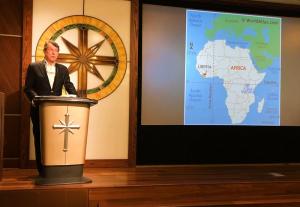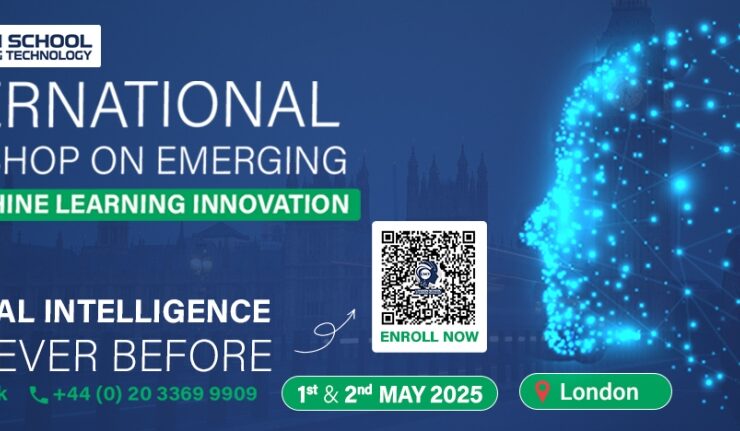Why Literacy Is the Key to Human Rights and a Better Life for All
The Pasadena chapter of Youth for Human Rights International commemorates U.N. Human Rights Day, highlighting the right to education.

Illiteracy is our world’s slow-motion catastrophe. The United Nations estimates some 617 million children and adolescents of primary and lower secondary school age—more than 55 per cent of the global total—lack minimum proficiency in reading and mathematics. This learning calamity not only imprisons individuals, preventing their ability to climb out of poverty, it threatens the commercial and cultural future of entire nations as they vie to survive in a worldwide marketplace.
At a forum honoring United Nations Human Rights Day, the Church of Scientology Pasadena and its chapter of Youth for Human Rights International sponsored a presentation on this crisis December 4 by local attorney Tim Bowles.
No area of the planet feels the brunt of the developing tragedy in education more than sub-Saharan Africa, where the U.N. reports some 88 per cent of children (202 million) not proficient in reading and 84 per cent (193 million) not proficient in math.
To combat this stark reality and build on 15 years of successful human rights programs in West Africa, Bowles along with Liberian human rights activist Joseph Yarsiah and their on-the-ground volunteer team initiated the African Literacy Campaign to improve learning effectiveness with teacher training collaborations throughout the region.
Bowles explained the immediate motivation: “Ebola (2014-2016) and the destruction it inflicted upon the instruction of the youth population was a wakeup call.” Low literacy levels prevented the rapid dissemination of information and preventive measures. “lliteracy fueled that horrifying epidemic. Clearly then, ineffective education is the most destructive human rights violation. It makes possible violations of the remainder of the 30 articles of the United Nations Universal Declaration of Human Rights.”
Bowles and Yarsiah resolved in 2016 to partner with Applied Scholastics International. “Through its successes in several African countries and worldwide,” says Bowles, “the organization is clearly qualified to offer a viable solution to illiteracy through the proven effective learning methods of American author and humanitarian L. Ron Hubbard, widely known as Study Technology or Study Tech. The methodology, one that I used to greatly advance my law school studies in the 1970s, is undeniably effective in improvement of student comprehension and application. Time and again, I have seen Study Tech enable young people to discover or recover the true joy of learning, so vital to competence and lasting benefit to themselves and their communities.”
The African Literacy Campaign has worked over the past five years with local youth leaders and accomplished American and South African educators to introduce Study Tech to Liberia’s ministries, policymakers, teachers and students.
The results have been gratifying, most recently in a three-week series of training workshops in Monrovia, Liberia’s capital, in July. “With the prospect of expanding vaccination protection, it was time to refire the campaign to its pre-pandemic levels and beyond,” says Bowles. “Those blessed with the tools and opportunity to improve societal conditions, particularly in the educational sector, have the responsibility to do so. Our mission is to empower the greatest resource we have—this world’s youth—with the means to achieve in their lifetimes what we have all dreamed: Nations and cultures educated, economically dynamic, culturally vibrant, and the result of lasting peace.”
Bowles called on those attending to support the program and spread the word, closing the presentation with the words of Dr. Martin Luther King, Jr: “In the end, we will remember not the words of our enemies, but the silence of our friends.”
Youth for Human Rights International (YHRI) is a nonprofit educational organization dedicated to worldwide human rights education using the United Nations Universal Declaration of Human Rights. It inspires and equips young people as advocates for tolerance and peace. YHRI works with educators, civil servants, religious leaders, youth, and any person or organization of good will. The organization distributes audiovisual and printed human rights educational materials that may be ordered from its website. www.youthforhumanrights.org
The Church of Scientology Pasadena was dedicated in 2010 by Scientology ecclesiastical leader Mr. David Miscavige. The Church and its activities are featured in an episode of Destination Scientology on the Scientology Network. For more information, visit the website of Youth for Human Rights International, Applied Scholastics International or the Church of Scientology Pasadena.
Public Affairs
Church of Scientology Pasadena
+1 323-960-3500
Visit us on social media:
Facebook
Twitter
More Latest News


